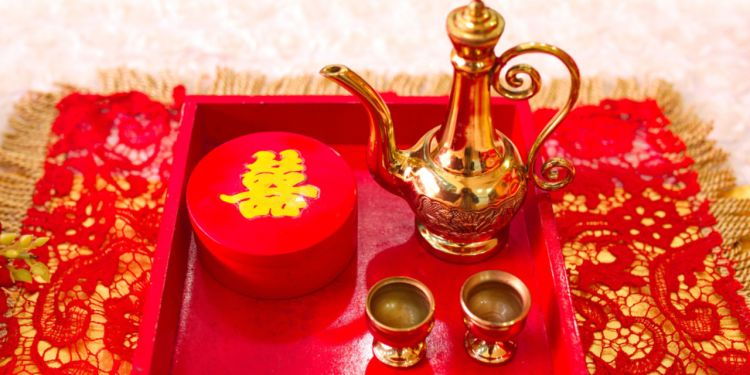
Have you met that perfect someone that you want to spend the rest of your life with? Luckily, getting married in Vietnam is feasible and achievable. In this article, we will highlight all parties eligible for marriage in Vietnam and provide you with the most up-to-date information on necessary documentation.
The stipulations for a legal marriage in Vietnam remain fairly consistent, as with any matters of this nature, the best thing you can do is contact your embassy or consulate in Vietnam. For marrying a Vietnamese citizen, they will have to contact their hometown party officials, as marriage regulations vary per province, and a Vietnamese citizen must be married in their hometown or home province.
Who can legally get married in Vietnam?
As with most things, the more straightforward your marital history is, the simpler the process will be. However, the majority of people can enjoy the right to legally wed in Vietnam as long as one person in the couple is a Vietnamese citizen. Two foreigners cannot get legally married in Vietnam, but you can still celebrate nuptials with friends or plan a destination wedding after saying “I do” in your home country.
For a non-Vietnamese citizen, you must have proof of residency in Vietnam for a minimum of 21 days before processing the marriage application. Many other requirements must also be adhered to before proceeding with a marriage application. These requirements are:
- The male party must be over 20 years of age. The female party must be at least 18;
- Neither the male nor the female has a spouse that is recognized by Vietnamese law;
- The couple must not have blood relatives for the past three generations;
- Both the male party and the female party must be psychologically capable of making independent decisions, meaning a health check and verification will be required before they say “I Do”.
Good to know:
In 2015, the Vietnamese Government no longer limited the sanctity of marriage to man and woman. They accepted that marriage could happen between two consenting adults and removed same-sex marriage as “illegal”. As of 2022, any couples falling into the LGBTQIA+ category may have their marriage blessed via traditional Vietnamese ceremonies, but only marriage licenses from abroad will be recognized legally in Vietnam.
Vietnam's Law on Marriage and Family is expected to be considered for revision, but as of February 1, 2025, no further changes or amendments have been announced.
What is the procedure for getting married in Vietnam?
Your Vietnamese spouse will need to obtain the following documents from their hometown province governing council:
- Certificate of marital status;
- Birth certificate;
- Citizen ID Card or National ID Card;
- Health certificate;
- Proof of residency;
- No criminal record certificate;
- Marriage registration application form.
Afterward, you will make an appointment with the Department of Justice, which has 15 days to carry out the following tasks:
- Interview applicants - It is paramount that the authorities recognize that both parties are proceeding with this marriage voluntarily. Thus, part of this process involves determining if the couple is genuine. Assessing how both parties perceive the meaning of their relationship can be a lengthy process. Furthermore, everything is recorded in full for official purposes. Once the interview is completed, both parties are required to sign the resulting documentation.
- Marriage listing - The Department of Justice will list this marriage for 7 consecutive working days at their headquarters.
- Contact the People's Committee of Communes - The Department of Justice will be required to make contact with the People's Committee of Communes in the Vietnamese applicant's hometown. It is here where the couple's marriage banns will be displayed for seven working days. The purpose of this is to inform the local area of a new marriage in process. This timeframe is also for any member of any party to register their disapproval. Although this occurrence is uncommon, the People's Committee of Communes would then be responsible for informing the Department of Justice.
- Decision - Once the Department of Justice has received all notarized documentation and fees, they will have 25 days to make their decision.
- Civil marriage - The head of the Provincial People's Committee will be required to sign the marriage certificate first. Following this, the Department Of Justice will commence with civil marriage within five working days.
Important:
Vietnam does not allow, recognize, or encourage marriage between these disqualified parties:
- Adoptive parents and the children they have adopted;
- Stepfather and his daughter-in-law;
- Stepmother and her son-in-law;
- Stepfather and the daughter of his wife;
- Stepmother and the son of her husband.
In a nutshell, if the bride and groom are even vaguely connected by blood, adoption, or marriage, marriage is off the table.
What documents are needed for marriage in Vietnam?
Below is a brief overview of the documents you will require to legally marry in Vietnam. Before proceeding, make sure your Vietnamese spouse has asked in their hometown, so it might save you both a lot of time!
Important:
All documentation must be translated into Vietnamese and notarized. A list of reputable translators is listed at the bottom of the article.
Application for marriage registration in Vietnam
This form is incredibly straightforward and shouldn't take more than a few minutes to complete. Providing both parties have the relevant information at hand, this aspect of the marriage process should be smooth. The form itself requires the names of both consenting parties, as well as passport-size photographs. If the Vietnamese citizen has lived abroad, they are expected to prove their marital status via their respective embassy or consulate.
Sign an affidavit of single status
Once you have both been in the country for at least 21 days, you'll be in a position to submit your application for marriage registration. This will need to be complemented with an affidavit that declares your single status. The price of this varies from embassy to embassy; however, it is typically less than US$ 100.
It is advisable to complete the affidavit before your appointment at the embassy; however, do NOT sign it until there is a consular witness present. If you are divorced or widowed, it is mandatory to submit a decree absolute or death certificate to authenticate this marital status. Likewise, any name changes resulting from the change of marital circumstances need to be evidenced by legal documentation.
Certificate of no-marriage records
This document must be acquired at the embassy of the foreign party. It certifies that no marriage license or record has been found concerning the said party. This may imply a lack of marital union from the age of maturity (18 for women, 20 for men), from divorce until the present, or from the death of a previous partner until the present.
Certificate of good mental health
This may sound a little obvious, although it's prudent that we include this small detail. Such documentation can only be provided by a recognized medical authority. The purpose of this certificate is to confirm that the applicant is conscious of their actions and decisions. It is also used as evidence to support their overall psychological well-being. Any previous mental illnesses -should they have existed - will be unearthed during this part of the application process.
Biographic information sheet
This is one of the final pieces of information required by the Department of Justice to legalize a marriage.
Certified copy of passport
More specifically, it is the signature and photo pages that are required by the authorities.
Temporary or Permanent Resident Card (If applicable)
Make a certified copy, and do not hand over the original or your only copy of this document.
If the foreign party can't be present in Vietnam during the application procedure, they are entitled to complete a Power of Attorney. This will permit their fiancé to resume proceedings on their behalf. This document must then be certified by a notary public, as well as a state-level Secretary of State. Following this, it must be authenticated by the foreign applicant's respective embassy or consulate.
As mentioned earlier, foreign nationals must have been in Vietnam for a full 21 days before registering their intention to marry a Vietnamese citizen. Previous visits or residencies cannot be included in this duration. Furthermore, all paperwork during the registration process must be completed in person.
Certificate of no-impediment
Once your Notice of Marriage is displayed on the Consular Section's public notice board, they will wait 21 days for potential objections to arise. A Certificate of No-Impediment will be issued in Vietnamese after this 21-day threshold. This certificate often has no standard validity. However, many embassies stress that it should be collected within 3 months of the issue. If uncollected within this time frame, the applicant will be required to provide a plausible explanation. The Ministry of Foreign Affairs will then decide whether to reissue the CNI or demand the applicant begin the process again.
Some countries, such as the UK, often demand that a marriage to a Vietnamese citizen be conducted in Vietnam first. However, once you have successfully tied the knot, you can request that your embassy deposit the Vietnamese marriage certificate in the General Register Office of your home country. This does NOT mean that your marriage is legally registered in your home country. It is simply a means of having your marital union recorded. Incidentally, depositing said marriage certificate is not a legal requirement in most countries.
Important information about getting married in Vietnam
Is there a stigma concerning living together if we're not married?
Vietnamese culture, traditions, and legislation dictate that foreigners should be married before moving in with a Vietnamese citizen. Granted, many young couples do ignore these precedents. However, following suit is at your own risk. The likelihood of falling victim to any legal scrutiny is moderately low. However, the older generations are much firmer in their application of traditions. Being unmarried and living with your partner might lead to consequential gossip, but what matters is who is registered legally at the residence. Ward police will periodically check the “red book” or the “proof of residency,” especially at popular foreigner apartments. The landlord is responsible for updating these documents, but if you move in with a partner or a partner moves in with you, then this must be updated immediately.
Good to know:
It's a common misconception that you can get married at your embassy or rely on them for help with planning your nuptials. Your embassy is not authorized to ordain marriages, as they operate on a national scale, and your wedding will require a Department of Justice, on the provincial level.
How much will a wedding in Vietnam cost?
Putting legal costs aside for a moment, the average cost of a wedding in Vietnam is around US$ 7,000. Food is generally one of the top priorities, and this can vary depending on the type of cuisine you would like. Many Vietnamese families prefer to keep things as Vietnamese as possible. Another point worth noting is that Vietnamese marriages are typically large. Catering for 100 guests is uncommon; even poor families will spend around 80 million VND (US$ 3,311.26 ) on such occasions.
The good news is that Vietnamese tradition implies that guests should make voluntary donations in the form of red envelopes. It is common at most ceremonies for there to be a heart-shaped box that will hopefully be overflowing at the end of the night. Furthermore, rather than hiring a venue, which incurs additional costs, a large proportion of Vietnamese prefer to conduct their wedding ceremony at home. It is common to rent a large tent and cover the sidewalk or alleyway with chairs and tables to make guests comfortable during the celebration. The couple, especially the groom, will be expected to sit with each table or guest and have a toast to their marriage, so be prepared for a long evening!
Useful marriage-related contacts in Vietnam
If you plan to marry in one of the major cities, the marriage procedure will be slightly more straightforward. We have dropped the contact details for the three largest Justice Departments below. However, remember that you will need to contact this department at the provincial level. If your spouse-to-be is from a more rural area, finding the relevant authorities will require a little more research.
Department of Justice – Hanoi
Address: 1B Tran Phu Street, Ha Dong District, Hanoi
Tel: (04) 33546163
Fax: (04) 33546155
Department of Justice – Ho Chi Minh City
Address: 141-143 Pasteur, Ward 6, District 3, Ho Chi Minh City
Tel: (08) 38290230
Fax: (08) 38243155
Department of Justice – Danang
Address: 16 Bach Dang Street, Hai Chau District, Danang
Tel: (0511) 3822822
Fax: (0511) 3895267
AM Vietnam Translation Company - AMVN Language Solutions
Address: Capital Tower, 21 Floor, 109 Trần Hưng Đạo, Cửa Nam, Hoàn Kiếm, Hà Nội 111106, Vietnam
Tel: 842438789800
Công ty Dịch Thuật Thao & Co.
Address: VietPhone Building, 1st floor, 64 Nguyễn Đình Chiểu, Đa Kao, Quận 1, Thành phố Hồ Chí Minh 700000, Vietnam
Tel: 84396773374
We do our best to provide accurate and up to date information. However, if you have noticed any inaccuracies in this article, please let us know in the comments section below.












Comments
8I can speak to all of this with some authority since I was married in Vietnam as recently as August 2022. the biggest problem with this article starts with the advice to contact your Embassy or consulate. in fact the very first thing that any Foreigner should do when considering marriage in Vietnam is have your fiance check with the party officials in their home province. this is because each province sets its own specific guidelines and regulations regarding marriage. under Vietnamese law you must be married in the home province of your fiance where that person's name is registered in their family the home book. the second huge problem is that you say the record of no marriage has to be obtained from your Embassy or consulate. in fact, many provinces don't require this, especially if a person has never been married before. and if they do require it, it must be obtained from the home county of the Foreigner in their native country. the county clerk must attest to know record of marriage having been found and then the state government Secretary of State can certify that the record is indeed genuine from the county of that person. once that record has been fully verified by the state government it can either be sent to an embassy/consulate of Vietnam for certification since Vietnam is not a signatory to the Hague convention, or it can be brought to the Vietnam and notarized at the embassy or consulate and then that notarization can be taken to the Foreign Service office where the document notarization by the US government is further notarized, meaning that the Foreign Service office guarantees that the notary is in fact from the embassy or consulate. nobody approves the underlying document. they simply notarize. once all of that is done, if that document is required on the provincial level then that must be presented at the provincial level as a part of the marriage application